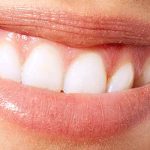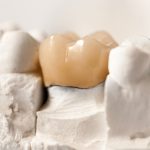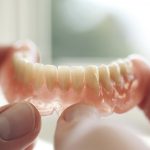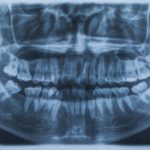Dee Family Dental: Gentle Oral Care in Columbus, Indiana
 At Dee Family Dental in Columbus, Indiana, we provide a variety of affordable general and cosmetic dental services to area residents of all ages — patients from Edinburgh, Seymour, and Brown County included! Our dentist, Dr Anthony Dee, DMD, and staff ensure adults and children an easy visit in a comfortable environment that results in healthy, confident smiles.
At Dee Family Dental in Columbus, Indiana, we provide a variety of affordable general and cosmetic dental services to area residents of all ages — patients from Edinburgh, Seymour, and Brown County included! Our dentist, Dr Anthony Dee, DMD, and staff ensure adults and children an easy visit in a comfortable environment that results in healthy, confident smiles.
When you visit, we'll personalize your procedures and put your fears at ease with our gentle care so you never have to worry about visiting us for your oral needs.
General & Family Dentistry
Dee Family Dental offers solutions for all your general and family dentistry needs through routine examination and restorative work.
During your routine visit to our dental office (recommended every six months!) a team member will clean and polish your teeth, and Dr. Dee will examine your teeth and gums for signs of decay, damage, or disease. We want to keep your smile healthy, and exams let us achieve that by detecting serious issues and preventing minor problems from becoming worse.
Dee Family Dental also restores damaged smiles and offers procedures to alleviate pain from compromised teeth.
When we recommend a treatment, we'll make sure you understand the suggested procedure and that you leave our office confident you're well cared for by an experienced team with the latest technology.
Happy Visit
Parents know that forming healthy habits in kids is important. For this reason, Dee Family Dental offers Happy Visits so your child's first pediatric experience at the dentist is positive.
A Happy Visit provides children the chance to acclimate to the dental office. They'll sit in your lap, get used to the dental chair and lights, and during the visit we'll count their teeth and examine their hard and soft oral tissues, generally doing as much as child will allow. We'll also introduce them to "Rex," our clinic dinosaur which we use to show kids how to brush their teeth and explain dental procedures to them.
During the visit, our goal is to put your child at ease. Happy Visits are preventative and meant get them in the habit of visiting the dentist and cleaning their teeth.
Pediatric dentistry is available for children as young as 12 months or when their first tooth shows.
Bridges & Crowns
 If you've lost a tooth and have a gap in your smile, there are several options to restore your smile. The first is a dental implant. These provide a long-term solution but often are expensive. The second solution is dentures. Unlike dental implants, dentures are inexpensive, but they are impermanent and may not be the best solution if few teeth are missing.
If you've lost a tooth and have a gap in your smile, there are several options to restore your smile. The first is a dental implant. These provide a long-term solution but often are expensive. The second solution is dentures. Unlike dental implants, dentures are inexpensive, but they are impermanent and may not be the best solution if few teeth are missing.
The third option is permanent but also budget-friendly: a bridge. A bridge uses crowns and a false tooth to literally bridge the gap in your teeth, thereby repairing your smile and preventing the neighboring teeth from shifting in your mouth. Such a device can improve your ability to eat and talk, prevent jaw problems, keep teeth from shifting, and will restore your smile.
 If you've experienced tooth decay or trauma that requires large fillings or which may result in worsening problems, Dr. Dee might recommend installing a crown to alleviate the pain and protect the tooth. A crown fits atop a damaged tooth, replacing its size, shape, and appearance, and a crown can keep a weak tooth from breaking or repair a tooth that's broken already, preventing the need for a root canal or extraction.
If you've experienced tooth decay or trauma that requires large fillings or which may result in worsening problems, Dr. Dee might recommend installing a crown to alleviate the pain and protect the tooth. A crown fits atop a damaged tooth, replacing its size, shape, and appearance, and a crown can keep a weak tooth from breaking or repair a tooth that's broken already, preventing the need for a root canal or extraction.
Crowns can also serve cosmetic purposes by covering misshapen or discolored or titanium implants. Inquire for a free consultation.
Dentures and Partials

At times, tooth decay and disease can lead to multiple teeth needing extracted. If you've undergone multiple extractions, you may benefit from a smile replacement with dentures. Dentures are removable prosthetics that substitute for some or all your teeth.
There are two kinds of dentures: partials and complete. Partial dentures replace only a small section of your teeth and are secured with a small piece of metal. Complete dentures replace all your teeth. To provide these dentures, Dr. Dee may at times need to remove remaining teeth to make room for the prosthetic.
Digital X-Rays
 Dentists commonly take X-rays to examine the interior health of teeth and to find other issues not visible during a visual examination. But not all offer digital X-rays. Rather than use traditional X-ray film, our dentists use X-rays to capture digital images, which are available immediately to view. This process also exposes you to less radiation, helping ensure your health in the long-run, and takes less time than traditional methods.
Dentists commonly take X-rays to examine the interior health of teeth and to find other issues not visible during a visual examination. But not all offer digital X-rays. Rather than use traditional X-ray film, our dentists use X-rays to capture digital images, which are available immediately to view. This process also exposes you to less radiation, helping ensure your health in the long-run, and takes less time than traditional methods.
There are several types of digital radiography procedures that Dee Family Dental uses. These include:
Panorex: Panorex provides a panoramic view of your teeth and the surrounding bone.
Bitewings: Bitewings help our dentist detect gum disease, issues with tooth alignment, and cavities between and behind your teeth.
Periapical: A periapical X-ray takes an image of a whole tooth and provides the dentist a close-up image that magnifies potential problems.
Types of Dental Cleaning
Periodontal disease is diagnosed by your dentist or dental hygienist during a periodontal examination. This type of exam should always be part of your regular dental check-up.
A periodontal probe (small dental instrument) is gently used to measure the sulcus (pocket or space) between the tooth and the gums. The depth of a healthy sulcus measures three millimeters or less and does not bleed. The periodontal probe helps indicate if pockets are deeper than three millimeters. As periodontal disease progresses, the pockets usually get deeper.
Your dentist or hygienist will use pocket depths, amount of bleeding, inflammation, tooth mobility, etc., to make a diagnosis that will fall into a category below:
Gingivitis
Gingivitis is the first stage of periodontal disease. Plaque and its toxin by-products irritate the gums, making them tender, inflamed, and likely to bleed.
Periodontitis
Plaque hardens into calculus (tartar). As calculus and plaque continue to build up, the gums begin to recede from the teeth. Deeper pockets form between the gums and teeth and become filled with bacteria and pus. The gums become very irritated, inflamed, and bleed easily. Slight to moderate bone loss may be present.
Advanced Periodontitis
The teeth lose more support as the gums, bone, and periodontal ligament continue to be destroyed. Unless treated, the affected teeth will become very loose and may be lost. Generalized moderate to severe bone loss may be present.
Treatment for Periodontal Disease
There are many surgical and nonsurgical treatments the periodontist may choose to perform, depending upon the exact condition of the teeth, gums and jawbone. A complete periodontal exam of the mouth will be done before any treatment is performed or recommended.
Here are some of the more common treatments for periodontal disease:
• Scaling and root planing – In order to preserve the health of the gum tissue, the bacteria and calculus (tartar) which initially caused the infection, must be removed. The gum pockets will be cleaned and treated with antibiotics as necessary to help alleviate the infection. A prescription mouthwash may be incorporated into daily cleaning routines.
• Tissue regeneration – When the bone and gum tissues have been destroyed, regrowth can be actively encouraged using grafting procedures. A membrane may be inserted into the affected areas to assist in the regeneration process.
• Pocket elimination surgery – Pocket elimination surgery (also known as flap surgery) is a surgical treatment which can be performed to reduce the pocket size between the teeth and gums. Surgery on the jawbone is another option which serves to eliminate indentations in the bone which foster the colonization of bacteria.
• Dental implants – When teeth have been lost due to periodontal disease, the aesthetics and functionality of the mouth can be restored by implanting prosthetic teeth into the jawbone. Tissue regeneration procedures may be required prior to the placement of a dental implant in order to strengthen the bone.
Root Canal Therapy
Root canal therapy (RCT) and endodontics are the terms that describe the procedure that treats the nerve of the tooth. Endodontics is a specialty of dentistry that deals specifically with the tooth pulp ( the substance in the center of a tooth that consists of nerve, blood vessels & connective tissue) and tissues surrounding the root of the tooth. Root canal therapy can save the root and crown of the tooth in order to maintain its proper spacing and function in the mouth. RCT is the removal of the nerve and blood vessels from the canals within the tooth, and replacing them with a biocompatible sealer and rubber material called gutta percha. Although the tooth is no longer viable (alive), it still functions in the mastication (chewing) of food just like an alive (viable) tooth.
Root canaled teeth will likely need a crown to protect the tooth from fracturing in the future. The full coverage crown can consist of either a full metal crown, partial metal or all-ceramic (no metal) crown. Here at West Village Dental Studio, we provide same day dental crowns made out of porcelain or zirconia to give you the best aesthetic finish and function. This allows us to place your crown in one visit saving you time and money.
